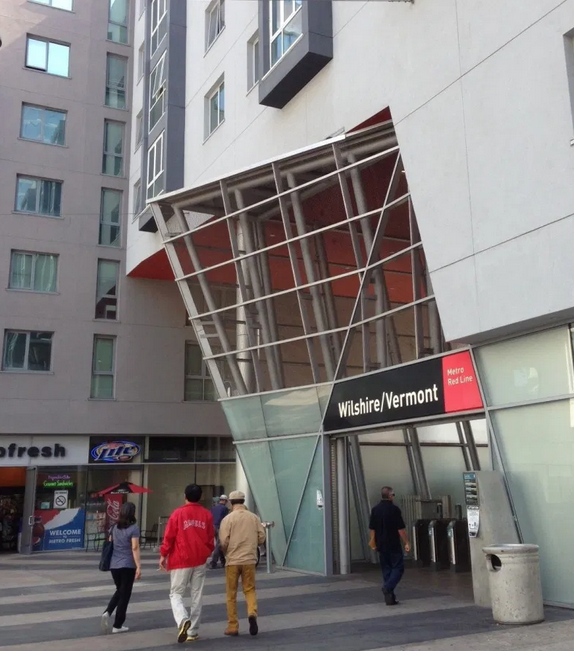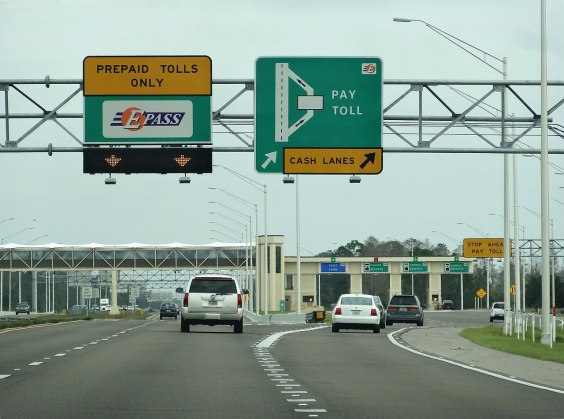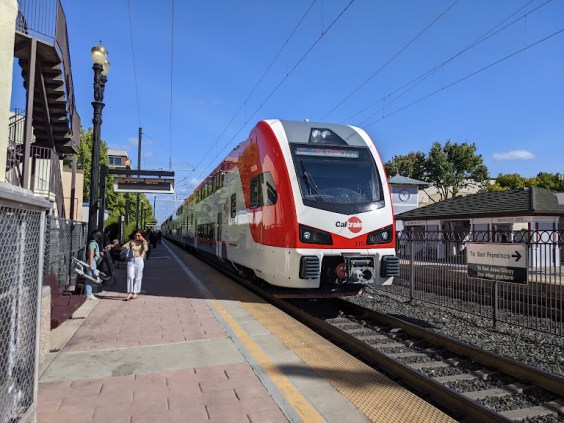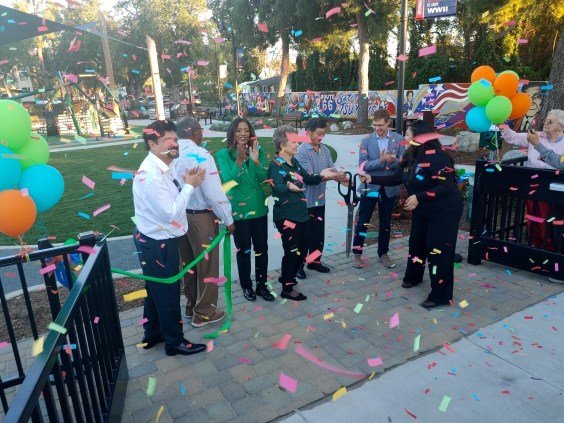Yesterday, the Los Angeles Times broke the story that Fix the City (FTC) is suing to put a halt to the city of Los Angeles' Transit Oriented Communities (TOC) Affordable Housing Incentives program.
Per the Times:
[FTC spokesperson Laura] Lake said city officials improperly used the [TOC] program to rezone much of the city without securing legislative approval. They also provided developers with incentives, such as increased height, that go beyond what was authorized by the voters [in Measure JJJ], she said.
“We’re challenging more than the one project at 10400 Santa Monica Blvd.,” Lake said. “We’re challenging a policy and practice that the city is using for all TOC projects. We want that halted and we want the planning department to start all over again with due process, public hearings and do what the voters approved.”
What is Fix the City?
In the Times article, the Alliance for Community Transit's (ACT-LA) Laura Raymond aptly described Fix the City as “notorious NIMBYs... stalling progress towards a more sustainable and equitable city.” Fix the City is a group of litigious mainly-Westside homeowners who sued to block L.A.'s multi-modal Mobility Plan - ridiculously asserting that the city was "stealing" lanes from drivers, who did not "have the luxury of being able to ride to work on a bike or bus." FTC is also suing L.A. City to undo planning for modest amounts of additional housing near Expo Line stations, and against other developments and plans.
Fix the City works on a model similar to an extortionist. They sue - or threaten to sue - the city and/or developers. In the process, FTC gets paid off (for example, L.A. City paid $107,000 to settle the Mobility Plan lawsuit), then FTC plows the money back into more shakedown lawsuits, wasting city time and money and blocking progressive projects and plans.
What is TOC?
In 2016, L.A. City voters approved Measure JJJ, which was designed to create new affordable housing, especially around transit, built by local workers paid living wages. In 2018, L.A. approved its JJJ-mandated Transit Oriented Communities Affordable Housing Incentive Guidelines.
TOC incentivizes developers to build affordable housing close to high-quality transit. TOC only applies to very specific places - within a half-mile of a "rail station or the intersection of two or more [frequent service] bus routes." TOC does not apply to single-family zoned areas, nor does it apply to zones where no housing is allowed. For new affordable homes, TOC does allow various bonuses: reduced parking, increased density, additional height, etc. These bonuses are tiered and targeted: the closer the project is to transit and the better the transit is, the better the bonus incentives are.
Technically, TOC does not "rezone" (Laura Lake in yesterday's Times) or "up-zone" (Jay Beeber on an anti-BRT flier) but keeps existing zoning intact, while offering incentives that apply only when developers build affordable housing. Various anti-transit anti-affordable-housing folks - from Beeber to Keep L.A. Moving to L.A. City Councilmember John Lee - have stoked fears of TOC triggering an "automatic up-zoning" of whole corridors. This is not the case. TOC is targeted tightly around high quality transit - at rail stations and at intersections where multiple bus lines connect.
In less than 2 yrs, TOC has created safe and deeply affordable housing for nearly 4000 Angelenos. It’s not the only answer, but it’s an important piece of the puzzle. What if we spent our energy building other pieces of the puzzle, not trying to destroy the ones that are working? https://t.co/5Sdl2kpqV6
— Doug Smith (@DougSmth) September 4, 2019
The good news is that TOC is already working to generate significant new affordable housing. According to Public Counsel's Doug Smith, TOC has already created affordable homes for nearly 400 Angelenos.
What is in the latest lawsuit?
The lawsuit (PDF) challenges the city's TOC approval of a seven-story 120-home residential Westside development, to be located at 10400 Santa Monica Boulevard, just west of Century City. It further asserts that the development approval "is just one instance of the City's violating its own laws by application of the TOC Guidelines."
The lawsuit questions the legitimacy of the Planning Commission approving the TOC Guidelines, asserting that they should have been approved by the City Council.
FTC asserts that current TOC guidelines should be rescinded, because they are "in conflict with JJJ" in several ways:
[TOC incentives] far exceed those authorized by the voters enacting Measure JJJ...
Nowhere does Measure JJJ authorize incentives for increased height, reduced open space, or reduced side or front yards.
Measure JJJ provides that the TOC Guidelines shall contain incentives "consistent with the following" which include a residential density increase, adjustments to minimum square feet per dwelling unit, floor area ratio, or both, as well as parking reductions. The TOC Guidelines include additional incentives for reductions in required yards and setback, open space, and lot width; increases in maximum lot coverage, height, and transitional height requirements. Each of these "additional" incentives alters otherwise applicable limitations in the municipal code without complying with the procedural requirements for zone changes, height district amendments and general plan amendments or variances...
The TOC Guidelines significantly depart from the framework approved by the voters and overturn the duly-adopted ordinances passed by the Los Angeles City Council governing a variety of land use planning standards. Nor were the "Tiers" allowing increased density with proximity to transit authorized by Measure JJJ. The Tiers function as newly created zones, which were not adopted by ordinance nor approved by the voters. Only the voters can amend Measure JJJ; the Council may only make nonsubstantive amendments to the measure's provisions. The TOC Guidelines significantly rewrite Section 6 of Measure JJJ in numerous ways.
The TOC Guidelines are so sweeping they effectively constitute a general plan amendment, vastly increasing permissible density and height for certain residential projects.
The lawsuit further claims that TOC approvals are improper due to "inconsistency between Zoning and General Plan Requirements," as "Measure JJJ did not compel the significant increases to density included in the TOC Guidelines." It argues that city regulations should first improve adequate transportation infrastructure (for cars) before permitting additional density - of course raising the common nimby bogeyman of "first-responder response times." The lawsuit goes on to assert that
The additional incentives granted to the Project were de facto general plan amendments without notice, due process, and legislative approval, or the required findings of adequacy.
In addition, the lawsuit contends that TOC construction living wage provisions have not been consistently enforced, and that the Santa Monica Boulevard development violated state earthquake safety laws.
To address Fix the City's assertions, the lawsuit asks for the city "to set aside the approval for the 10400 Santa Monica Boulevard project, and to set aside the... TOC Guidelines, and to cease any future reliance on the TOC Guidelines until and unless guidelines consistent with Measure JJJ are adopted."
What Next?
In a statement to SBLA, ACT-LA's Raymond states that "The TOC program, authorized under Measure JJJ, was approved by 64% of Angelenos who support a more sustainable, transit-oriented and equitable Los Angeles. This lawsuit is about taking us backward toward a sprawled, segregated, and car-centric L.A. and altogether stopping the production of critically needed mix-income and affordable housing."
NIMBYs are NIMBYing. From the same folks who sued the city over its plan for more bus and bike lanes.https://t.co/LMFJJRRZu3
— Laura Raymond (@laurajraymond) September 4, 2019
It is not clear how the courts will look upon the latest FTC lawsuit. If it is anything like the prior Mobility Plan lawsuit, the city will likely spend time and money to prevail in preserving its popular voter-approved TOC program. Like the Mobility Plan, TOC may survive in a weakened form - with city staff and electeds treading all too carefully, fearful of future lawsuits. The city may well pay out shakedown money to FTC.
Sadly the lawsuit could mean delays for much-needed affordable homes at a time when Los Angeles is facing serious crises in affordable housing and homelessness.






